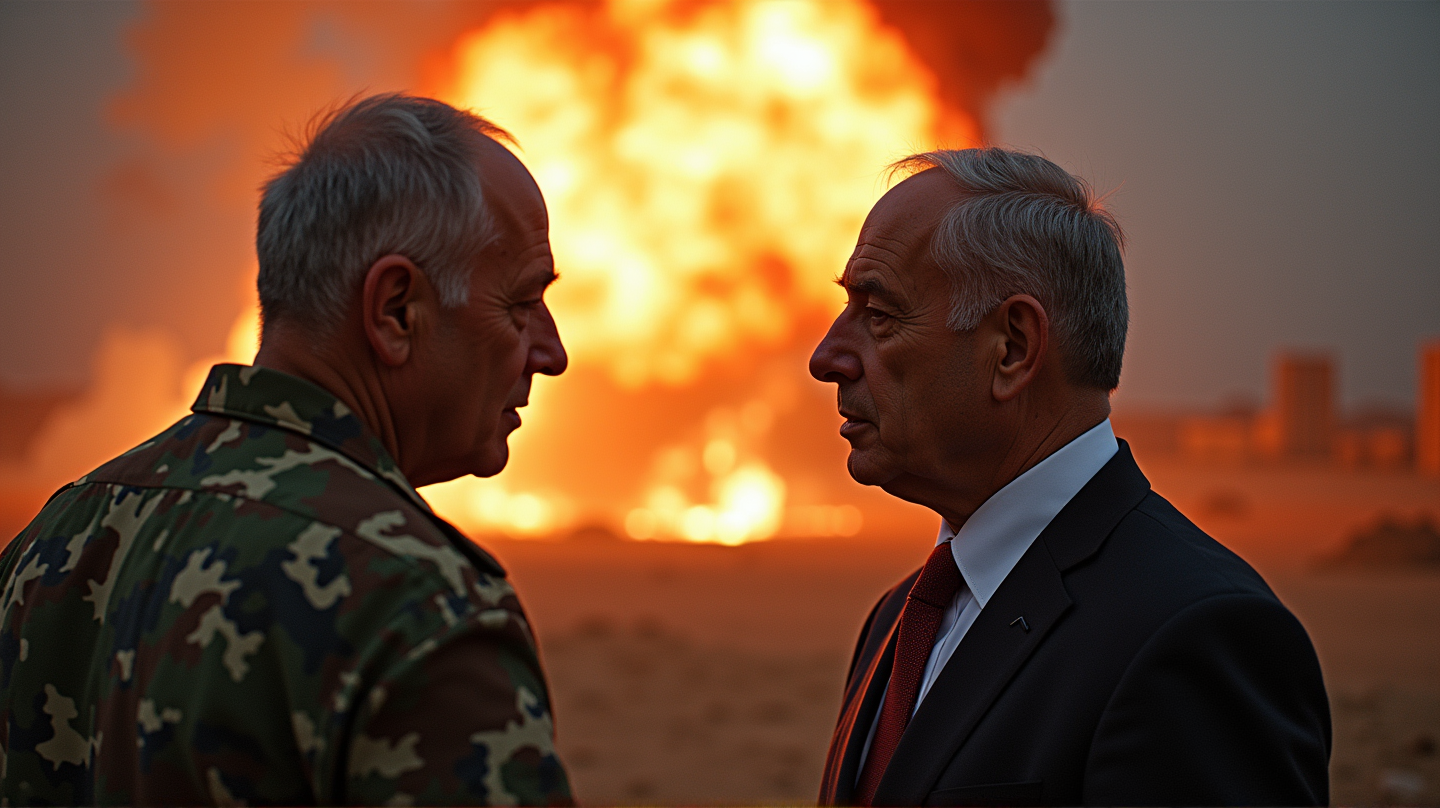Israel Urges Rapid Action on Iran Amid U.S. Decision Discord
Israel's impatience grows as U.S. deliberates action on Iran's nuclear site, with internal American tension possibly influencing decisions.

In the backdrop of delicate Middle Eastern geopolitics, an intriguing intersection of urgency and strategic contemplation emerges. As Israel grows impatient, the Trump administration faces internal conflicts regarding potential actions against Iran’s nuclear program.
Dual Forces in Play: Israel’s Swift Urge and U.S. Hesitation
As reported, Israeli officials have expressed their frustration with the U.S.’s suggested two-week deadline concerning military intervention. The word from Israel is clear—they may not wait for the U.S. to join forces before acting upon the nuclear facility at Fordow. According to Reuters, this impatience stems from the strategic opportunity Israel perceives against Iran’s ambitions. The uncertainty persists as the U.S. administration debates its involvement in echoing the broader American reluctance for another Middle Eastern conflict.
The Call Heard Across Borders
In a phone conversation that radiated tension, Israeli leadership communicated their expectations directly to U.S. officials, with Prime Minister Benjamin Netanyahu at the helm. U.S. Vice President JD Vance reportedly voiced concerns about the U.S. engaging militarily, resisting a war that could have extensive ramifications. This highlights a significant debate within the U.S. camp, challenging Trump’s decision-making influenced by his prior campaign promises.
The Fordow Factor
Central to this high-stakes diplomatic dance is Fordow, Iran’s nuclear site believed by many to be a bedrock of its nuclear capabilities. Israeli insiders believe striking while the strategic iron is hot is vital to unsettling Iran’s nuclear agenda. Yet, U.S. intervention is deemed critical given the sophistication and strength required to compromise the site effectively.
A Labyrinth of Options and Speculations
What might Israeli action look like should it occur without U.S. partnership? The scenarios range from precision strikes to combined operations involving special forces. Such an operation, dangerous yet possibly necessary in Israel’s view, presents an immediate question of military capacity. The international community watches closely as developments unfold, each move layered with potential for global impact.
Diverging Views and the Propensity for Action
U.S. political members hold mixed opinions on how to proceed, with some backing Israeli efforts and others pushing for peaceful resolutions. Notably, the rift within Trump’s sphere of influence reveals the complexities of international allyship. Understanding the avenues Israel might take becomes a multifaceted puzzle of military intrigue and diplomatic maneuvering.
Conclusion: A Tipping Point on the Horizon
As discussions continue at a fever pitch, the clock ticks toward a possible shift in Middle Eastern dynamics. Can diplomacy take precedence, or will tactical prowess shape the new narrative surrounding Iran’s contentious nuclear landscape? With anticipation, the world watches as decisions are made that may steer history.
These defining moments in U.S.-Israeli discourse on Iran spotlight not just current geopolitical imbalances but also underscore essential reflections on strategy, collaboration, and the costs of conflict.





